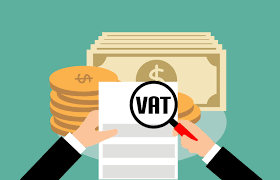Reverse Charges Mechanism in UAE VAT | Insights on Compliance
by Shethana Dec 23, 2024  5 MIN READ
5 MIN READ

Overview
The reverse Charges Mechanism in UAE VAT is a crucial part of the tax calculation system for all businesses. This is responsible for keeping up smooth VAT transactions and compliance across the border for imports. Earlier this tax was handled between the supplier and the customer. Currently, RCM shifts the responsibility of handling standard VAT between the supplier, buyer, or recipient of goods and services. This is crucial for businesses importing goods and services from different countries. As it affects how the VAT calculation involves foreign suppliers. As you read further, you learn more about the applicability, framework, and registration process for VAT. For more information and regular updates visit Arnifi.
Understanding the Framework of VAT
Federal Decree-Law No. 8 of 2017 on Value Added Tax, specifically in Article 48, established the Reverse Charges Mechanism in UAE VAT. This provision defines the state where RCM applies, transferring the obligation to pay VAT from the supplier—often located outside the UAE—to the recipient within the country. By requiring recipients to directly account for VAT to the Federal Tax Authority (FTA), the UAE effectively secures VAT revenue on imports that might otherwise evade taxation due to the supplier’s non-residency.
How does RCM Work?
Understanding how RCM works is essential for businesses to ensure compliance with VAT regulations. Here’s a simplified explanation:
- Transaction Initiation: A VAT-registered business in the UAE purchases goods or services from a foreign supplier who is not registered for VAT in the UAE, initiating the transaction.
- VAT Responsibility Transfer: Under the RCM, the responsibility to account for VAT shifts to the UAE-based recipient. The foreign supplier does not include VAT on the invoice.
- Recording and Reporting: The recipient business records the VAT in their VAT return as both input and output VAT. If the input tax is fully recoverable, this process generally has no impact on cash flow.
- Compliance Measures: The business must ensure that invoices indicate the application of RCM and maintain accurate records to support VAT returns.
For Instance – Consider A Dubai-based company that imports goods worth AED 20,000 from a UK supplier who is not registered for UAE VAT. The Dubai company calculates 5% VAT in its VAT return, pays it to the Federal Tax Authority (FTA), and treats it as input tax.
Procedure for Business to Comply with RCM
To comply with the RCM, UAE businesses should take the following steps:
- Verify VAT Registration: Ensure the business is registered for VAT in the UAE.
- Identify Relevant Transactions: Review purchases to determine if they fall under RCM, particularly imports and specific goods or services covered by RCM regulations.
- Maintain Accurate Records: Document all RCM-related transactions thoroughly, including invoices that indicate the application of RCM.
- Report VAT Correctly: Accurately account for RCM transactions in VAT returns, reporting both input and output VAT as required.
- Seek Professional Guidance: Engage VAT consultants for expert advice on handling complex RCM scenarios and staying compliant with UAE VAT regulations.
Pros and Cons of RCM
RCM compliance has streamlined the VAT system, offering many benefits with only two minor drawbacks.
Pros:
- Ease of Compliance for Foreign Suppliers: The RCM removes the requirement for non-resident suppliers to register for VAT in the UAE. This minimizes administrative complexities and promotes international trade.
- Avoid VAT Fraud: By shifting VAT responsibility to the UAE-based recipient, the RCM prevents revenue loss and reduces the likelihood of fraudulent VAT claims by non-resident suppliers.
- Supports Cross-Border Trade: The RCM simplifies VAT procedures for imports, enabling UAE businesses to work seamlessly with international suppliers without the need for the suppliers to undergo complicated VAT registration.
Cons:
- Challenges in Compliance: Businesses need to carefully understand the situations and procedures for applying RCM, which can be intricate. Particularly for those involved in diverse cross-border transactions.
- Frequent errors: Errors in RCM like overlooking VAT on imports or misreporting, can lead to penalties and compliance issues.
Key Takeaways
Reverse charges on VAT in the UAE provide clarity and enable smooth cross-border transactions without disrupting the economy. The system simplifies the process by exempting the foreign supplier from applying for VAT. Instead, the receiver’s company in the UAE directly pays 5% of the goods’ value to the Federal Tax Authority. Arnifi hand holds you with this RCM compliance and accounting service. Explore now!
About Arnifi
Arnifi is a digital-first corporate service provider that helps businesses enter the UAE and Saudi Arabia markets. Founded by professionals from Amazon, Souq, and other large KSA companies, the team has deep experience in startup success and navigating the setup process in both countries. We provide a truly digital experience for entry and scale-up of companies in both the UAE and Saudi Arabia. Discover tailored solutions and strategic partnerships that propel your business forward. Check out at – www.Arnifi.com for more details.
Also Read: Discover the Top Industries in UAE Today
Top UAE Packages

Related Articles
Top UAE Packages



